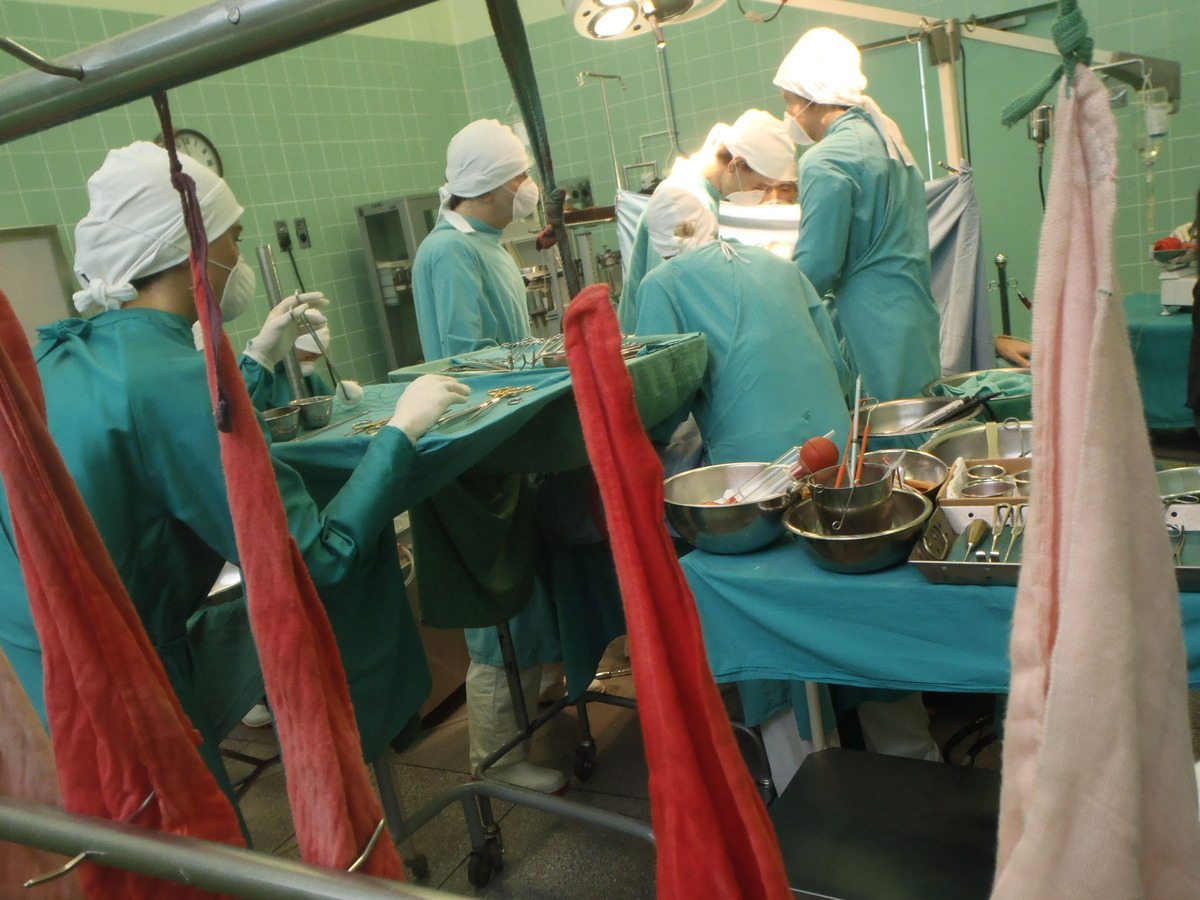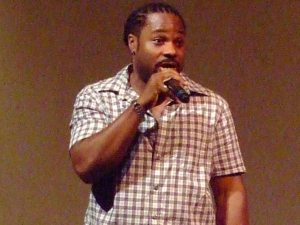It took seconds and a miraculous intervention for Larry Black Jr. to walk away from death as he lay chest exposed on top of an operating room table. Zohny Zohny, a first-year neurosurgeon, saved his life.
Six years later, Black, 28, is a musician and father to three children. He now requires frequent physical therapy to address residual health issues from the gun injuries. And although he was in a medically induced coma, Black claimed that his memories of those moments still haunt him.
In March 2019, Zohny encountered Black after his 22-year-old patient arrived at the hospital following a head injury. He had been shot while on his way to his sister’s home in downtown St. Louis.
He fainted shortly after and crawled to the back door of a woman’s home, where he requested assistance. A crowd was gathered around him when his sister, Macquel Payne, later discovered him lying on the ground close to her apartment complex’s leasing office.
But Black assured his sister not to worry about him before an ambulance arrived to take him to the hospital.
According to Zohny, Black was taken to surgery a week later to have his organs removed for donation, even though his heart was pumping and he had not been pronounced brain dead.
Black stated that he tried to prove to everyone in his hospital room that he had heard them. He remembered tapping on the side of the bed and blinking his eyes to indicate that he was battling for his life.
“I heard my mama yelling,” he told KFF. “Everybody was there yelling my name, crying, playing my favorite songs, sending prayers up.”
Payne said she asked her brother to blink twice if he could remember his first pet, a dog named “Little Black” that looked like the Chihuahua from the Taco Bell commercials. Black said he did remember blinking twice. His sisters remember the same thing.
Payne questioned him once more. She wanted to find out if her brother remembered their family this time. Black said he blinked twice when he noticed his mother and sister standing nearby.
According to Black, his sister then asked “the main question,” which everyone needed an answer to.
“She’s like, ‘If you want them to pull a plug, if you tired and you giving up, blink once,’” Black recalled. “‘If you still got some fight in you, blink more than once.’”
Black recalled that he began blinking and hitting the bed to signal to his family that he was still there. The sisters said that hospital employees informed them that the movements were involuntary.
A woman holding brochures explained to Payne and the rest of the family in a waiting room near the hospital’s intensive care unit that Black had registered himself as a possible organ donor on his ID.
According to Payne, the woman asked if the family wanted to proceed with the process if Black died.
“I remember my mom saying, ‘Not right now,'” Black’s sister said. “‘It’s kind of too soon.'”
According to Payne, the woman was persistent.
“She was like, ‘Well, can I at least leave you some brochures or something?’” Payne recalled. “Then my mom got a little agitated because it felt like she was being, like, pushy.”
Later, the family agreed to have Black’s organs donated after members of Black’s care team had told the family that Black was at “the end of the road.” At the time, Payne believed her brother still had a fighting chance. Before he was brought down the corridor, she asked the hospital staff to examine him again.
“I’m like, ‘My brother’s in there tapping on the bed,’” Payne said. “They said, ‘That’s just his nerves.’ But I’m like, ‘No, something’s not right.’ It’s like he was too alert. He was letting us know: ‘Please don’t let them do this to me. I’m here. I can fight this.’ They were saying that’s what the medicine will do, it affects his nerves.”
According to the family, a very helpful member of Black’s medical team grew standoffish when the family decided to proceed with the organ donation process.
The family accepted their fate and dressed in blue jumpers for Black’s “last walk of life,” the tradition that honors the life of an organ donor before the harvesting process begins.
“We just walked around the floor, and everybody was, like, acknowledging him,” Payne said. “We just thought this was the end.”
Molly Watts, Black’s sister, said the family had reservations after consenting to give Black’s organs but felt overlooked until Zohny, the 34-year-old neurosurgeon who was in his first year of practice, intervened.
According to Zohny, he overheard a hospital loudspeaker announce a “hero’s walk.” He didn’t recognize the term, so he asked about it. The hospital’s medical residents informed Zohny that the walk might have been for Black, one of his patients.
“No, that can’t be my patient,” Zohny said he told them. “I didn’t agree.”
Zohny then called the intensive care unit to find out about Black’s condition. He added that someone who answered the phone informed him that Black was being brought to an operation room.
“This is my first year,” Zohny said. “Your first year out as a neurosurgeon is the riskiest time for you. Any mistakes, anything small, basically derails your career. So the moment this happened, my legs went weak and I was very nervous because, at the end of the day, your job as a doctor is to be perfect.”
After reviewing documentation, Black did not meet either of the criteria for being dead, nor did his brain stem cease to function irreversibly, which is required for brain death donation. In addition, Black had not had a brain death exam.
Zohny said that he broke the news to his chairman right away and hurried to the surgery room.
“Get him off the table,” the doctor recalled telling the surgical team at SSM Health Saint Louis University Hospital as the team cleaned Black’s chest and abdomen. “This is my patient. Get him off the table.”
Zohny was first unrecognizable in his surgical mask. Then he notified the surgical team that he was the neurosurgeon assigned to Black’s case. The team members were stunned by his commands and pushed back, claiming that they had permission from Black’s family to extract his organs.
“I don’t care if we have consent,” Zohny recalled telling them. “I haven’t spoken to the family, and I don’t agree with this. Get him off the table.”
“The worst-case scenario for me is that I lose my job,” he recalled thinking at the time. “Worst-case scenario for him, he wrongfully loses his life.”
Then Zohny returned to Black’s family and brought them into a nearby vacant surgery room.
“I remember he told my mama, ‘I can’t kill your son,’” Payne recalled. “She said, ‘Excuse me?’”
Zohny displayed a picture of Black’s brain on a screen and marked the damaged area. He explained that Black’s wound was something he might perhaps heal from, though he could require therapy. Instead of stopping care, the doctor asked the family whether they would be prepared to allow Black more time to recover from the injuries.
Today, Black is attempting to move forward. He explained that if the gunshot fragments in his skull move around too much, he experiences seizures. He added that the injury causes him to overheat easily.
He does not fault his family for their decision. He does, however, have concerns about the organ transplantation process.
“It’s like they choose people’s destiny for them just because they have an organ donor ribbon on their ID,” Black said. “And that’s not cool.”
With more than 48,000 transplants performed in 2024, organ transplants continue to save many lives in the U.S. every year, according to the Organ Procurement and Transplantation Network.
However, organ donation has also come under criticism in recent years, as there are reports that some patients show alertness before planned organ harvesting.
READ ALSO: British man dies after going to Turkey for a hair transplant at a popular clinic










